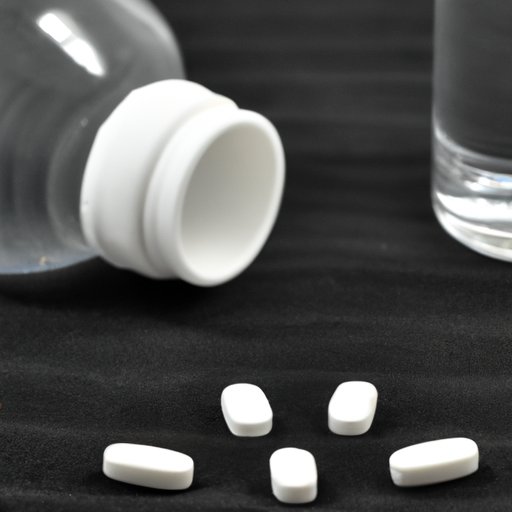
I. Introduction
Water retention, also known as edema, can occur when excess fluid builds up in the body’s tissues, leading to swelling, bloating, and discomfort. For some people, water retention may be especially problematic, causing tightness in the legs, ankles, or feet, or making it difficult to find comfortable clothing. If you’re struggling with water weight, it’s important to know that there are evidence-based strategies that can help you reduce swelling and feel more comfortable in your body. In this article, we’ll explore how to reduce water retention fast and offer practical tips for incorporating these strategies into your daily routine.
II. Drink More Water
You may think that drinking more water will only worsen your water retention, but the opposite is true. When your body senses that you’re dehydrated, it begins to hold onto water as a way of conserving resources. By drinking more water, you can help signal to your body that it’s safe to release this excess fluid.
To increase your water intake, try swapping sugary drinks for water or herbal tea, carrying a water bottle with you throughout the day, and sipping on water-rich foods like cucumber and watermelon.
III. Reduce Sodium Intake
Sodium, found mostly in table salt, can contribute to water retention by encouraging your body to hold onto fluid. To reduce your sodium intake, limit processed and prepared foods, which are often high in salt, and instead opt for whole, fresh foods that you can season yourself. When cooking at home, experiment with herbs and spices to add flavor without relying on salt. If you do use salt, opt for sea salt or pink Himalayan salt, which may contain fewer additives than regular table salt.
IV. Consume Natural Diuretics
Natural diuretics are foods and herbs that have been shown to help your body release excess fluid. Incorporating these foods into your diet can be a great way to support your body’s natural processes. Some natural diuretics include:
- Celery
- Cucumbers
- Green tea
- Parsley
- Tomatoes
These foods can be eaten on their own or added to dishes like salads, soups, and stir-fries. Be sure to talk to your doctor before incorporating natural diuretics if you have a medical condition or are taking medications that could interact with these foods.
V. Get Moving
Physical activity can help your body release excess fluid, in addition to providing a wide range of other health benefits. If you’re looking to reduce water retention, focus on exercises that get your heart rate up and promote circulation. Some effective forms of exercise include:
- Brisk walking
- Swimming
- Cycling
- Dancing
- Strength training
How much exercise you need will depend on your individual needs and fitness level, so talk to your doctor before starting any new exercise regimen.
VI. Try Compression Garments
Compression garments like socks, stockings, and sleeves can help improve circulation and reduce swelling by applying pressure to specific areas of the body. These garments are often worn by athletes and those with medical conditions like varicose veins and lymphedema, but they can be useful for reducing water retention as well. When choosing compression garments, look for products that provide the right level of compression for your needs, and be sure to wear them according to the manufacturer’s instructions.
VII. Monitor Medication and Supplement Use
Some medications and supplements can contribute to water retention, so if you’re struggling with edema, it’s important to talk to your doctor about any medications or supplements you’re taking. Your doctor may be able to adjust your dose or recommend alternative treatments that don’t cause water weight gain. If you’re taking supplements, be sure to buy them from reputable sources and talk to your doctor before starting any new supplements.
VIII. Conclusion
Reducing water retention can be challenging, but by incorporating evidence-based strategies like drinking more water, reducing sodium intake, consuming natural diuretics, getting moving, trying compression garments, and monitoring medication and supplement use, you can reduce bloating and swelling and feel more comfortable in your body. Remember, everyone’s needs are different, so experiment to find the strategies that work best for you.




